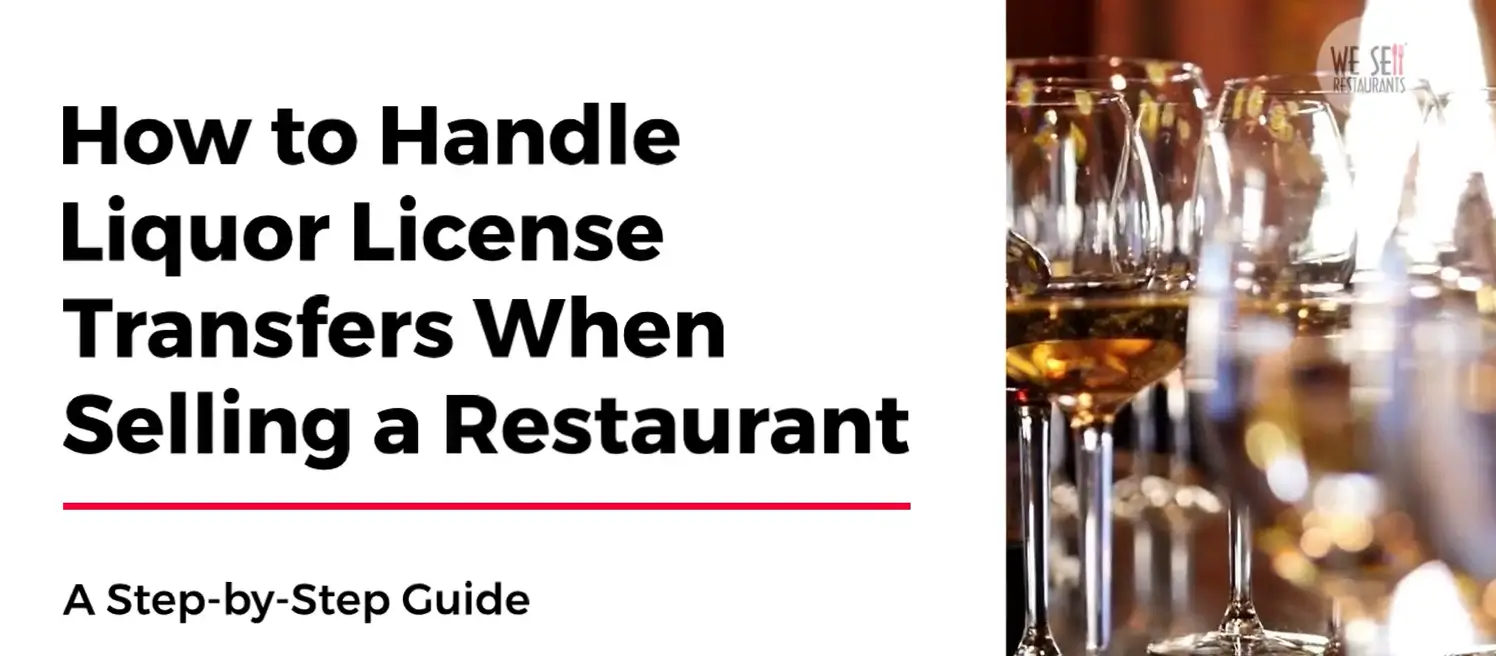How to Transfer a Liquor License in Las Vegas: What You Need to Know

Your Guide to a Smooth Liquor License Transfer in Clark County
If you’re buying or selling a business that serves alcohol in Las Vegas, transferring a liquor license is a critical part of the process. Whether it’s a bar on the Strip, a local restaurant, or a retail liquor store, operating without the proper licensing can shut your doors before you even open.
In this post, we’ll walk you through everything you need to know about transferring a liquor license in Las Vegas—from local laws and permit types to timelines and expert help.
Why You May Need to Transfer a Liquor License
A liquor license is legally required to sell or serve alcohol in Nevada. But these licenses aren’t automatically transferable between people or business entities. You may need to go through the transfer process if:
You’re purchasing a business that already has a liquor license
You’re changing the ownership structure (e.g., adding/removing partners or creating an LLC)
You’re acquiring a business that’s moving to a new location
You’re assuming operations after a merger or sale
Failing to transfer the license properly can result in delays, fines, or even the loss of your right to sell alcohol.
Types of Liquor Licenses in Las Vegas
Before initiating a transfer, it’s important to know which type of liquor license applies to your business. The city of Las Vegas and Clark County offer several categories, including:
Tavern License – For businesses selling alcohol for on-site consumption (bars, lounges)
Package Liquor License – For retail businesses selling alcohol for off-site consumption
Restaurant with Alcohol – For restaurants generating at least 50% of revenue from food
Caterer’s License – For companies serving alcohol at events
Liquor Distributor/Importer – For those who distribute or import alcoholic products
Each type of license has its own application requirements, fees, and zoning regulations.
Can You Transfer a Liquor License in Las Vegas?
Yes—but not automatically. Liquor licenses are not “sold” like property. Instead, the new owner must apply for approval to operate under that license through a formal ownership transfer process. Clark County and the city of Las Vegas both require:
A full application from the new owner or entity
A background check and fingerprinting
Proof of financial responsibility
A local business license
Zoning verification
Some types of licenses—such as tavern or package liquor licenses—may also have quota limits, meaning they are limited in number and subject to waiting lists or purchase from existing holders.
Steps to Transfer a Liquor License in Las Vegas
The process typically involves the following steps:
1. Conduct Due Diligence
Before initiating the transfer, review the existing license to ensure it’s in good standing. Make sure the business is current on all fees and taxes and complies with zoning and health codes.
2. Submit an Application
The buyer must file a liquor license application with the City of Las Vegas Business Licensing Division or Clark County Business License Department, depending on location. This includes:
Personal history forms
Business structure documents
A letter of intent to purchase
Location information
3. Complete a Background Check
All applicants must undergo a thorough background investigation, which may take several weeks. Any red flags—such as prior alcohol violations or criminal convictions—can delay or prevent approval.
4. Attend a Hearing (If Required)
Some license types or ownership changes may trigger a public hearing or require approval by the Liquor and Gaming Licensing Board. This is common for taverns or establishments near schools or churches.
5. Receive Conditional Approval
If approved, you’ll typically receive conditional licensing allowing you to operate while final paperwork or inspections are completed.
6. Finalize the Transaction
Once you have conditional approval, you can close the purchase or business transition. Full licensure may take additional time depending on the complexity of your case.
How Long Does a Liquor License Transfer Take in Las Vegas?
The timeline varies, but expect 30 to 90 days from start to finish. Factors that can affect timing include:
The completeness of your application
Background check duration
Whether a hearing is required
The complexity of the transaction
Costs Involved in a Liquor License Transfer
Fees vary based on license type and jurisdiction, but typical costs include:
Application fee ($200–$1,500+)
Fingerprinting/background fee ($70–$100 per person)
Annual license fee (varies widely)
Legal or consultant fees if you use a third party
Why Work with a Liquor License Consultant?
Navigating the transfer process alone can be overwhelming, especially with the high cost of mistakes. A liquor license consultant like Silent G Consulting can help you:
Avoid delays or rejections
Ensure compliance with all local laws
Expedite background checks and applications
Coordinate with attorneys and city officials
Stay focused on your business
With years of experience handling Las Vegas liquor license transfers, we understand the nuances of every license class and jurisdiction—from Clark County to the Strip and beyond.
Ready to Transfer Your Liquor License?
At Silent G Consulting, we’ve helped countless Nevada business owners secure, transfer, and maintain their liquor licenses. Whether you’re buying a bar, opening a retail liquor store, or converting your restaurant into a full-service lounge, our team can help make your transition smooth and stress-free.
Contact us today to get started with a free consultation or learn more about our services.

